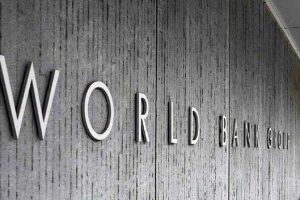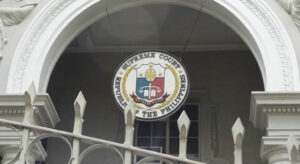Chito Sta. Romana and Truth Watch

“Agentleman with a calm and soothing demeanor combined with acuity, competence, and courage” could be one of the best ways to describe and honor our departed friend and former ambassador to the People’s Republic of China, Jose Santiago Lucero Sta. Romana or simply “Chito.”
To be sure, there are many more profound and more comprehensive ways of honoring and describing Chito but any way will always capture one of Chito’s endearing qualities: decency.
Although many reports have described the circumstances of Chito’s death and relatives have added more information in the novena masses held for Chito, it would help just to go over the basic information.
Chito died alone on Monday, April 18, in his quarantine hotel at Huangshan City. Chito was complying with the required 21-day quarantine before returning to Beijing after traveling from the Philippines with Foreign Affairs Secretary Teodoro Locsin, Jr. who visited China for talks with Foreign Affairs Minister, Wang Yi.
STUDENT DAYSMany things have been written and said about Chito’s accomplishments as a journalist and diplomat. In contrast, my account will be about our student governance days. Chito completed grade school (1961), high school (1965) and college (1970) with Liberal Arts (Economics) and Commerce (Accounting) degrees at the then De La Salle College, a product of a Christian Brothers education. Finishing college at that time, when student activism and student power was at its height and with the first quarter storm (FQS) occurring in January 1970 or a few months before graduation, was by itself a big challenge.
Ferdinand Marcos had just won reelection in November 1969 and was at the peak of his popularity being the first president in the country’s history to win a second term. There was now talk of continuing Marcos’ rule through Imelda and/or some form of amendment to the 1935 Constitution. Marcos had gone to Congress — then located at Burgos Ave., across the Muni golf links — to address a pliant Congress totally under the control of his victorious Nactionalista Party. As Marcos and his entourage were leaving Congress, a crowd made up mostly of students surged forward and within seconds a cardboard coffin flew towards Marcos’s direction and bedlam ensued. The coffin was meant to symbolize the death of democracy as talk of constitutional change to accommodate the Marcoses’ extended rule filled the air and became the hot topic in coffee shops and talk shows.
Chito was there and so were we with several other La Salle boys who cut class to join the mass action. Other mass actions preceded what came to be known as the FQS, which originated from the Jan. 26, 1970 mass action that started after Marcos delivered his State of the Nation before the joint session of Congress. Protests extended up to late evening, with the dispersal operations conducted by the Manila Police Department and the then Philippine Constabulary marked by brutality which later set the tone for future dispersal operations. Chito was in most of these demonstrations even as the so-called moderates of the National Union of Students of the Philippines (NUSP), led by Edgar Jopson, had fragile relations with the more radical groups like the Kabataang Makabayan and the Samahang Demokratikong Kabataan or SDK.
As Student Council President of De La Salle, Chito and the Council veered towards the left or what some would describe as left of center. The rest of the student body, for example, supported commerce junior students who led a sit-down protest in the middle of the then football field over the repatriation to the US of an American Christian Brother who openly encouraged and supported activism and student power. The sit-down strike led to a general strike that lasted several days, with a big majority of the students boycotting classes. Chito and a number of other council officers and students holed up at the Liwayway Hotel in Echague where we produced protest materials and paraphernalia, met with a curious media that wondered at the activism of boys from so-called conservative exclusive schools. We also met with sympathetic student leaders from the UP, Lyceum, and the Philippine College of Criminology, to name a few.
Despite his deep involvement in student activism which attracted the attention of Marcos’s security and intelligence forces, Chito was able to finish college in regular time. On graduation day, Chito delivered, as student council president, the leadership award speech imploring La Salle graduates to remain courageous and steadfast in the fight to protect one’s rights. In an inspiring speech before school administrators, faculty, and parents of graduates, Chito echoed the familiar chant in the streets, “Huwag Matakot, Makibaka (Don’t be afraid, struggle/fight).” One of Chito’s guests at the commencement ceremonies was UP Student Council president Jerry Barican.
CHINA DAYSWhile his classmates went on to pursue professional careers or emigrated right after graduation, Chito never wavered in his fight for true freedom. As part of his continuing education and to get a fuller perspective of China, he led a delegation of students that went there in 1971. Among his companions were fellow activists Jaime Florcruz and Ericson Baculinao. The three would opt to remain in Chins rather than face arrest by Marcos after the Plaza Miranda grenade attack on Aug. 21, 1971 and the subsequent suspension of the writ of habeas corpus.
Chito would later become the award-winning bureau chief of the American TV network, ABC, while Jimmy would be appointed CNN Beijing Bureau Chief, and Ericson, NBC Beijing Bureau chief.
Chito, Jimmy, Eric and I would later have dinner and coffee in Beijing when I visited China as a member of President Fidel Ramos’ delegation to the BOAO Forum in Hainan sometime in 2004-2005. After Chito was appointed Ambassador to China, I would call him up from time to time to get insights on Philippine-China relations in the light of the West Philippine Sea dispute. As he would always say, “The thing to remember is to just do what is best for the country.” And that’s exactly what Chito, the patriot, did.
SURVEYSAs we approach the May 9 elections, one can’t help but be exposed to all the political talk and maneuverings and, of course, surveys.
As they say, one truthful survey deserves another! Pulse Asia came up with a survey that had VP Leni Robredo at 24% compared to Marcos’s 56%, down from 60%.
A new group, Truth Watch, with its partner, Mobilis, reported its first survey findings from its March 22-April 2 survey initiative. Reports indicate that VP Robredo had a 30% share of the voting population while Marcos’s share was 52%.
Truth Watch, headed by its president, Dr. Dante Velasco, stated that Mobilis had a sample size of 2,500 respondents using simple random sampling. Truth Watch says that it will release the results of its latest survey this coming weekend.
Students of polling and campaign strategists should find all these results of different survey groups interesting and worth comparing and relating to the actual movements on the ground.
Philip Ella Juico’s areas of interest include the protection and promotion of democracy, free markets, sustainable development, social responsibility and sports as a tool for social development. He obtained his doctorate in business at De La Salle University. Dr. Juico served as secretary of Agrarian Reform during the Corazon C. Aquino administration.




